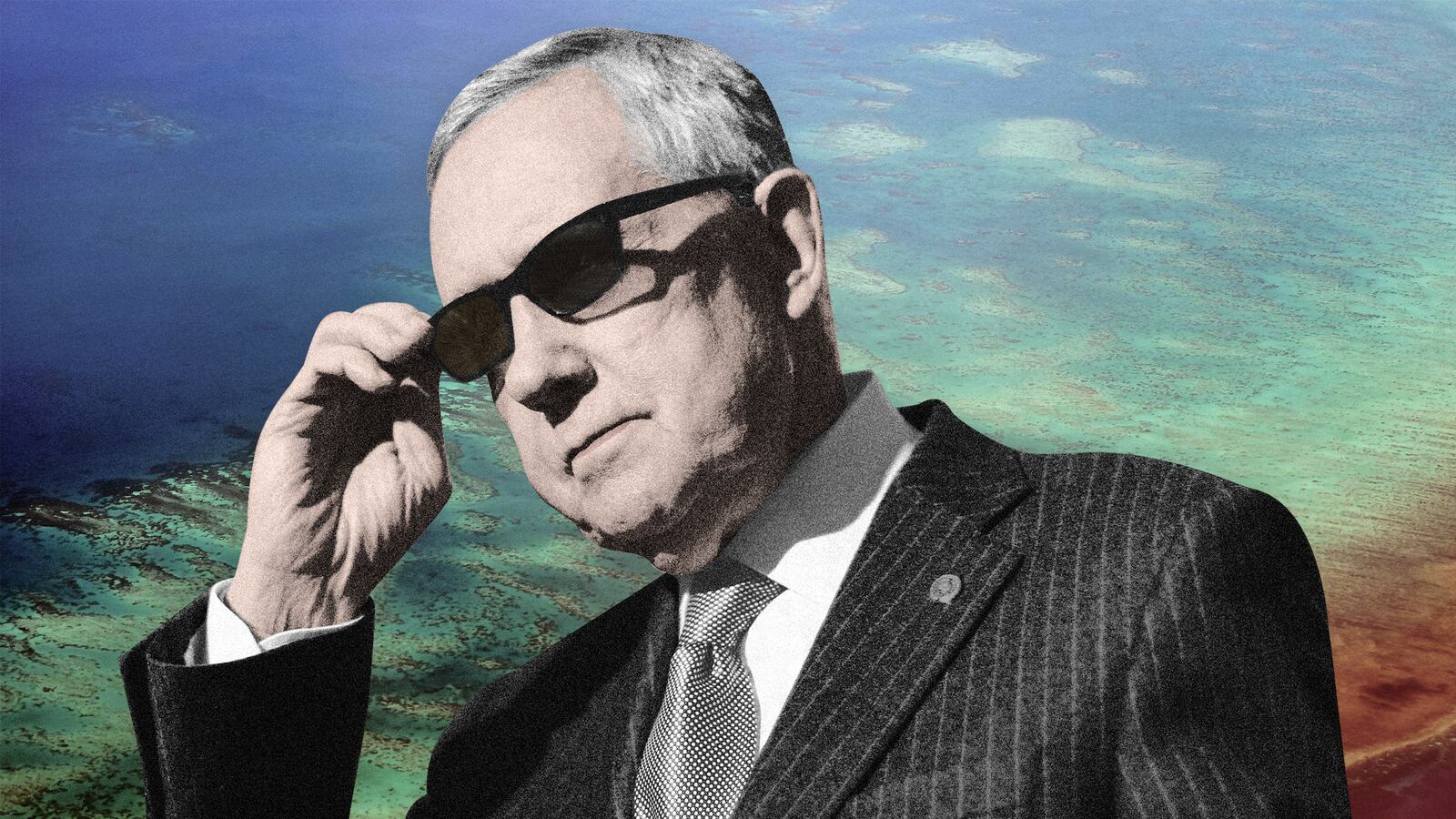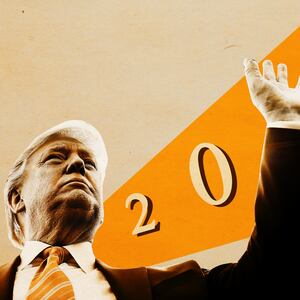LAS VEGAS, NEVADA -- As the Democratic Party debates what to prioritize should it take power following the 2020 elections, former Senate Majority Leader Harry Reid (D-NV) offered his fellow members a stern directive and an ambitious proposal.
Tackle climate change legislation first, Reid said. And if it requires eliminating the filibuster to do it... well, so be it.
“The answer is yes,” Reid said, when asked if he would scrap the Senate rule requiring 60 votes for legislation if it allowed the party to pass a bill addressing the climate crisis. “[T]he No. 1 priority is climate change. There’s nothing that affects my children, grandchildren, and their children, right now, more than climate.”
Reid’s admonition represents the most notable case of a party elder arguing that global warming needs to be the Democrats’ No. 1 agenda item. But it is also premised on three decidedly significant—and to varying degrees, unlikely—developments: that Democrats retake the White House, that they retake the Senate, and that 50 of those Senators decide they are comfortable changing the rules of their chamber to get rid of the filibuster.
It’s happened before, though with different stakes. In 2013, Reid and his fellow Senate Democrats scrapped the 60-vote threshold for most judicial appointments, saying that Republican opposition to Barack Obama’s nominees had left them with no other choice. In 2017, Majority Leader Mitch McConnell (R-KY), followed suit by scrapping the 60-vote threshold for Supreme Court nominees and cabinet officials, saying that Reid had laid the procedural and intellectual foundation for them to do so.
McConnell has resisted calls—including from President Donald Trump—to go even further and end the filibuster for actual legislation. But Reid said that the day will come for that as well.
“It is not a question of if,” he told The Daily Beast in an interview from his office at the University of Las Vegas. “It is a question of when we get rid of the filibuster. It’s gone. It’s gone.”
Reid has spoken about the inevitability of ending the filibuster before. But he has never been so explicit in saying it should be done early upon the Democrats retaking the Senate and for the purposes of passing climate change legislation. In doing so, the former majority leader was issuing a warning of sorts to those Democrats currently running for president. As the party’s candidates find themselves mired in a debate over the ambition of their respective health care proposals, Reid was making the case that other legislation would prove as, if not more, imperative—and in all likelihood less difficult to tackle.
Reid should know. He was in Congress when Bill Clinton was tripped up by health-care reform in his first term. He ran the Senate when the passage of health-care reform cost his party dearly in the 2010 midterms. And he watched closely as a failed health-care reform push doomed Republicans in 2018.
“It was the hardest thing I ever did,” Reid said of pushing through the Affordable Care Act.
Few people are as knowledgeable as Reid about the possibilities and limitations of moving matters through the United States Senate. He’s removed from the chamber now, having retired in 2016 amid health setbacks and questions about his political future. A diagnosis of pancreatic cancer came after retirement. But Reid said his health was good. And in our 40-minute interview last week, his mood was notably upbeat. It was clear that his distance from national politics was more geographical than operational.
Reid keeps in touch with former aides of his who occupy top posts on Sen. Bernie Sanders’ (I-VT) and Elizabeth Warren’s (D-MA) presidential campaigns. And candidates and operatives still take the pilgrimage to his offices and home to seek advice from the sage from Searchlight. Before our interview, Mayor Pete Buttigieg came to see Reid to discuss the 2020 race.
The senator reiterated his position that he would not endorse a candidate prior to the Nevada caucus and said that his vaunted political machine would not get involved either. He also studiously avoided tipping his hand as to who among the field had left him impressed.
In one moment, Reid dismissed talk that former Vice President Joe Biden had lost his proverbial fastball, saying that any candidate under persistent fire—as Biden was in a recent debate—would come across as a touch shaky. “I think anybody that attributes this to his age is just wrong,” said Reid. “He runs onto the stage. He looks like a million bucks. So I’m not going to do that.”
But Reid wasn’t entirely unsparing when it came to Biden either. The two men found themselves at odds at various points during the Obama years, when Biden cut deals with McConnell that Reid believed gave up too much and burned the party’s negotiating leverage. And Reid found the former vice president’s insistence that he could work with Republicans again to be divorced from modern political realities.
“I have served with Joe Biden for 34 years,” Reid said. “And I know, that’s who he is. He’s been always easy to get along with. And he was Obama’s guy to go work things out with McConnell on several occasions that I didn’t really appreciate. So, I know he feels that way. But for Trump, I think there would still be some of that going on. I think Trump has made it in improbable, if not impossible.”
Though they’ve been colleagues for decades, Biden and Reid are decidedly different political creatures. The former is a moderate-minded optimist, comforted by the notion that America can return to a past ideal. The latter has grown more liberal over time and more outwardly cynical about America’s political institutions.
There is still some traditionalism to Reid. He scoffed, for example, at the push among progressives to try and end the Electoral College in favor of a national popular presidential vote. “The Electoral College is unfair in many instances,” he explained. “But I don’t know how you’re going to change it. I just don’t know how.”
But he’s allowed himself to drift and dream when it comes to other structural reforms, like term limits to change the composition of the courts.
“Maybe I have no basis for talking about this because I’m in my seventies—in my eighties before too long. I have never favored term limits,” said Reid. “But when the Constitution was written, no one ever expected judges to live to be 80 years old. Now they’re going into their nineties in some places around the federal court system. So I think that we have to jiggle that around a little bit. I think that’s something we need.”
One thing Reid is dead set on is that his party must let go of the past. Our nostalgia for a bygone era, he argued, often colors over how bad the past could be. But beyond that, there is no practical upside for Democrats to cling to decorums and traditions when the other party does not. Told, for example, that Sen. Doug Jones (D-AL) had floated the idea of restoring the 60-vote threshold for judges should Democrats take back the Senate, Reid could barely contain a laugh.
“That’s a joke. That is a joke,” he said. “Well, you’re from Alabama. What the hell else are you gonna say?”
Reid took a second and composed himself, before offering a final point that seemed to be as much about explaining and defending his own career arc as it was about Jones. “You can’t go back,” he said. “You can’t. It’s done.”






